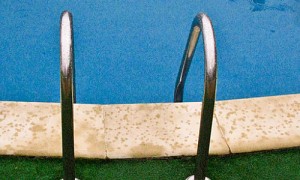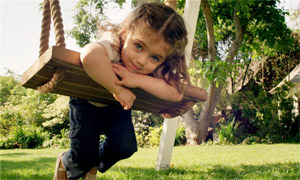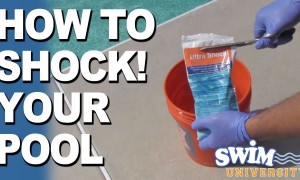Although the Philadelphia warm weather season is limited compared to other parts of the country, a swimming pool lends visual beauty and a sense of relaxation to your backyard, in addition to being a great place to cool off. If the summer heat has you thinking about adding an inground pool to your Philadelphia home this summer, here are a few tips to consider before you dig.
Calculate a Pool Budget
Pool installation encompasses a wide range of up-front costs, as well as ongoing maintenance expenses that need to be factored into a household budget. A contractor can provide an estimate of the initial costs to dig up your yard and install the pool. As far as surface materials go, plaster is still the most popular choice, according to Houzz.com. Other costs include landscaping and hardscaping around the pool area. You may also choose to add a heater to lengthen the amount of time you can use the pool in Philadelphia’s seasonal climate. For safety reasons, you must also fence in your yard when you install a pool. Check with your local township for the required height and approved fencing materials.
Once your pool installation is complete, you will be responsible for ongoing maintenance. In Philadelphia, these costs are estimated at around $450 per year, but may vary depending on your choice of cleaning and filtration system and how often you chose to use your heater. Hiring a service to help you open and close the pool will also add to your annual upkeep expenses.
Choose Your Upgrades
Once you have an idea about general pool installation costs, you may want to look into upgrades. If your yard is sloped, you may be able to add a zero entry effect and reduce the amount of steps or a ladder needed for entry. A water shelf (also called a tanning ledge or Baja bench) is another feature, typically 4 to 18 inches deep, which allows for young children to play or adults to cool off without being totally immersed in water. Safety upgrades such as pool alarms are another feature worth investigating, especially in a house with young children.
Consider Salt vs. Chlorine
Many new pool owners are choosing the saltwater chlorination method of cleaning pools over the standard chlorine tablets. Saltwater pools do in fact use chlorine for cleaning. The chlorine is created by running salt water through a generator connected to the filtration system. You do not need to manually add chemicals to the water as you would with a standard pool. The sterilization method used in saltwater pools reportedly is much gentler on skin and prevents your eyes from burning when swimming underwater. Saltwater pools come with more upfront costs, but generally are cheaper to maintain on an ongoing basis.
New swimming pool features provide homeowners increased automation choices, less maintenance, and more flexibility in the size and shape of pools available. If you’re thinking about installing a pool this summer, it’s easier than ever to find something that will fit in with your busy lifestyle.
Image Source: Flickr/Reigh LeBlanc
[cf]skyword_tracking_tag[/cf]







[…] post Pool Installation Tips to Maximize Your Philly Summer Fun appeared first on Coldwell Banker Blue […]
[…] New swimming pool features provide homeowners increased automation choices, less maintenance, and more flexibility in the size and shape of pools available. If you’re thinking about installing a pool this summer, it’s easier than ever …read more […]
[…] post Pool Installation Tips to Maximize Your Philly Summer Fun appeared first on Coldwell Banker Blue […]
[…] New swimming pool features provide homeowners increased automation choices, less maintenance, and more flexibility in the size and shape of pools available. If you’re thinking about installing a pool this summer, it’s easier than ever …read more […]
[…] New swimming pool features provide homeowners increased automation choices, less maintenance, and more flexibility in the size and shape of pools available. If you’re thinking about installing a pool this summer, it’s easier than ever …read more […]
Nice blog all stuff are very informative.
Pool installation is my favorite topic to read and write, thanks for this valuable information.
Nice article, thanks for taking the time to write. I particularly favor salt water chlorinator pools as I own one. The amount of time I have saved in manually measuring and dosing the pool with traditional chlorine has been great.
The pool looks good 24×7. I would definitely recommend a salt water pool.
Thank you for the useful info! I would also add a section about pool covers. Pool covers protect your pool from debris and prevent children or adults to accidentally fall in to the water.